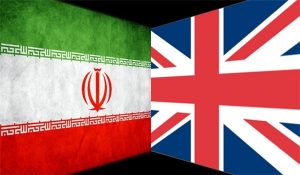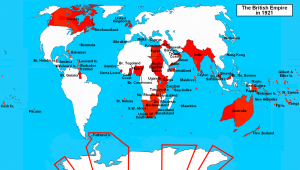The British Labour Party Uses Humanitarian Assistance as a Means of International Diplomacy In the Twenty-First Century
Giving of aid or humanitarian aids, in the twenty-first century, by the British Labour government to, for example, Iraq, after the 2003 war in that country, is essentially and technically a continuation of the old pattern which we saw in this article. Thus, it could be seen, as a mean of international diplomacy. “The U.K. has been at forefront of the humanitarian aid and situation for the people of Iraq”26, announced the NEC statement, after the 2003 war. (NEC is the National Executive Committee of the British Labour party) Later on in an announcement, the British Labour Minister for International Development, Clare Short, said, to the British MPs: “it was crucial, once the hostilities cease, to reinstate aids, and oil for food programme in Iraq.”27 On power conflict, Iraq, Tony Blair, the British Labour Prime Minister, said, “not only humanitarian aid should be offered to Iraq, but also a political reconstruction should take place there.”28
Thus it could be said the there is a gap between political ideology and
political practice. As, was pointed out earlier in this article, according to Professor P. Gopta, an oversimplified or sentimental view of the Labour’s ‘humanitarian aids’ policy should not be taken. Consideration of national self-interest in relation to the needs of British economy helps to determine Labour’s policy.29 The Labour’s policies are based on shrewd economic considerations being aimed at retaining Britain’s trading and financial role, as has been discussed in this article.
The determination to maintain Britain’s world role, therefore, it could be said, has been positively Churchillian, among the British political elite.
The British Conservative party leaders have very little disagreement with the British Labour party leaders in regard to safeguarding British interests in the new realities of the world. Among both the imperialists and anti-imperialists the humanitarian aids is uncontroversial, as they contain assistance to the developing countries and at the same time the economic interests of Britain are defended.
Notes:
1. C. J. BARLETT A History of post-war Britain 1945-1974, London: Longman, 1977, p. 24.
2. Ibid.
3. Ibid.
4. D. JUDD and P. SLINN, The Evolution of the Modern Commonwealth 1902-80, London: McMillan, 1982, p.87.
5. V. ALBERTINI, Decolonization, London: Africana Publishing, 1982, p. 115.
6. ibid.
7. Ibid.
8. Ibid, p. 213.
9. Ibid.
10. S. E. FINER, Comparative Government, Middlesex: Penguin, 1970, p.165.
11. Ibid.
12. N. MANSEERRG, Survey of British Common wealth Affairs 1939-52, London: Oxford U.P.1958, p.200.
13. Ibid.
14. P. CALVOCORESSI, World Politics Since 1945, London: Longman, 2000, p.240.
15. C.R.ATTLEE, STAFFORD Cripps’ Mission to India, Observer, 31.5.1964.
16. C.R.ATTLEE, As Happened, London: Heinemann, 1945, p.183.
17. A.CAMPBELL-HOHSON, Mission with Mountbatten, London: Hale, 1977, p. 57.
18. Ibid.
19. Ibid., p.55.
20. T.SOPER, Evolving commonwealth , London: Pargamon Pres, 1965, p.98.
21. K. O. MORGAN, Labour in Power 1945-5, Oxford: Clarendon Press, 1965, p. 98.
22. Ibid. p.230.
23. B.PORTER, The Lion’s Share, London: Longman, 1984, p. 318.
24. D. JUDD and P. SLINN, op.cit., P.91.
25. C.R.ATTLEE, op.cit., p.170.
26. http://www.Labour.org.uk/neciraq2809021/
27. http://www.Labour.org.uk/iraqbriefing/
28. http://www.Labour.org.uk/iraqbriefing/
29. Prof. P. Gupta, Quoted earlier.



